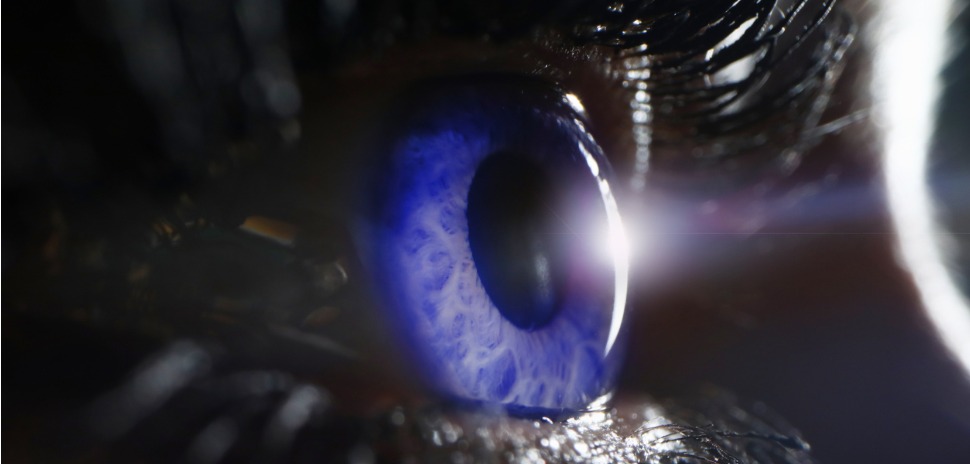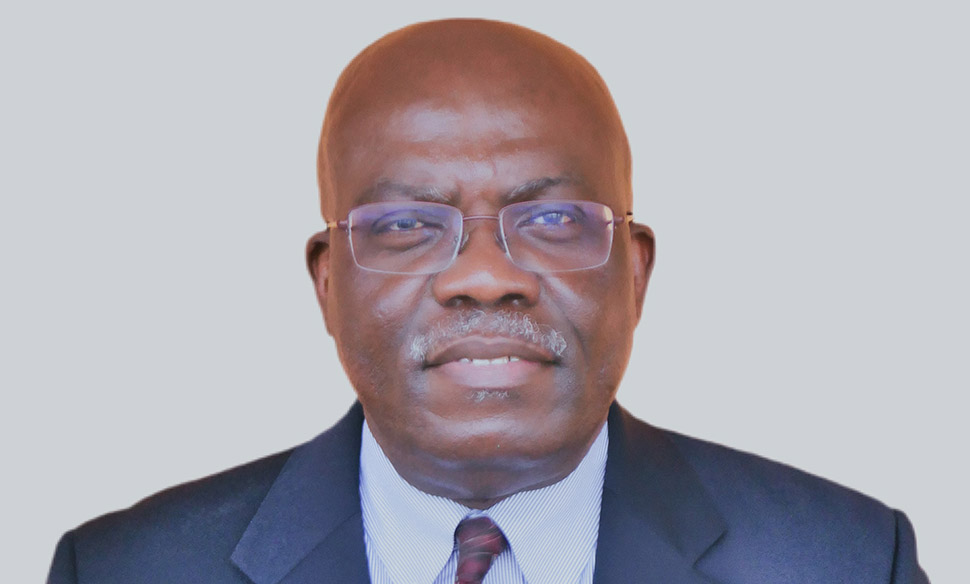Update 6/23/21: Nanoscope Therapeutics announced today that it has received FDA approval of its Investigational New Drug application for its Phase 2b clinical trial of MCO-010, an ambient-light activatable optogenetic monotherapy to restore vision in patients with advanced retinitis pigmentosa (RP). Its randomized, double-blind, sham-controlled Phase 2b trial will begin this month in locations across the U.S.
When you have retinitis pigmentosa, the world slowly goes dark. Most patients with RP lose most of their sight by young adulthood and are often legally blind by age 40. The genetic disorder affects around one in 4,000 people, causing the retina’s photoreceptive cells to degrade over time. But a new gene therapy is giving hope and producing life-changing results—and it could lead to treatments for far more common retinal diseases.
Bedford-based Nanoscope Therapeutics is trying to turn the light back on for RP patients—by developing gene therapies using light-sensitive molecules that could re-sensitize the retina to detect low light levels. That could restore vision in millions of visually impaired people who suffer from RP and other retinal degenerative diseases, like Stargardt disease and dry age-related macular degeneration (AMD). The startup’s gene therapies, called optogenetics, aim to bring sight to the blind. Nanoscope is one of a number of teams and companies exploring optogenetics as a treatment for RP.
“There is no treatment for the diseases that we’re working on,” Nanoscope’s co-founder, president, and chief scientific officer, Samarendra Mohanty, told Dallas Innovates. “So there’s a real unmet need that we are trying to fill.”

Samarendra Mohanty [Photo: Nanoscope Therapeutics]
Reading and watching TV after just eight weeks
Nanoscope, a clinical-stage biotech company, announced earlier this month that its Phase 1/2a clinical study using Multi-Characteristic Opsin (MCO) on RP patients had restored “clinically meaningful vision.” Significant dose-dependent improvement of visual acuity was demonstrated at 16 weeks, and continued through one year in patients suffering from severe RP, the company said.
The study included 11 patients with advanced RP who had either no light perception or just perception of light in the study eye and no better ability than counting fingers in their other eye. The study’s initial positive results were reported at the American Academy of Ophthalmology’s 2020 annual meeting last November.
“After MCO treatment, the patients reported long-lasting improvements in outdoor light sensitivity and daily activities,” said the principal investigator, Dr. Santosh Mahapatra, an ophthalmologist and eye surgeon, in a statement. “We were pleasantly surprised that after eight weeks of treatment, some subjects could attend their follow-up visits during the study without the assistance of a chaperone. Some of the patients even gained the ability to read letters on a wall or even the large text in a newspaper, use a cell phone, watch television, and could even thread a needle.”
Another benefit of the treatment: Vision restoration was produced without the need of stimulating retinal implants or explants (goggles).
Nanoscope co-founder and CEO Sulagna Bhattacharya said the trial study’s impact on patients’ lives has been powerful.
“Their quality of life improves significantly,” she told us. “This is a relief to patients’ family members, healthcare systems, and society as a whole.

Sulagna Bhattacharya [Photo: Nanoscope Therapeutics]
Phase 2b trial begins this month
“We expect to begin the first randomized, placebo-controlled, double-masked Phase 2b multi-center optogenetic trial in the U.S. this summer to further validate our gene therapy’s ability to improve clinically meaningful vision in RP patients,” Bhattacharya said in the statement. “If successful, it will be the first-ever restorative drug for millions of RP patients worldwide.”
On June 23 the company announced it has received FDA approval of its application for the 2b trial, and specified that the trial would begin this month. The trial will involve eight to 10 centers in the U.S., from Beverly Hills to Florida to other locations on the east coast.

[Image: Ivan-balvan/istockphoto]
A single injection can be life-changing
Nanoscope’s RP gene therapy has received orphan drug designation from the FDA. It uses a proprietary AAV2 vector to deliver MCO genes into the retina. This mutation-independent gene therapy is delivered via a single injection through the eye administered in a doctor’s office.
All 11 subjects participating in the trial had objective and subjective improvement in functional vision, Nanoscope reports. Shape discrimination accuracy improved more than 90% in all the subjects compared to baseline. Further, the performance in two different mobility tests improved by 50%, including the reduction in time to touch a lighted panel. Nanoscope says the test outcomes were highly correlated with improved patient-reported outcomes.
Nanoscope’s co-founder, Mohanty, is the inventor of the technology used in the trial.
“Optogenetics is a powerful research tool,” he said in a statement, “but had limited scope of clinical benefit because the opsins had a narrow band of activation, unlike natural light environment. MCO is sensitive to broadband light and activatable by ambient light, thus eliminating the risk of photo-toxicity from long-term continuous use of external intense light stimulation devices.”
$2M grant from National Eye Institute
Nanoscope Therapeutics got a $2 million grant from the National Eye Institute in June 2020 and closed an oversubscribed Series A funding round in July 2020 to help fund its clinical trial. The startup, a TechFW client, is a spinout from Nanoscope Technologies, serving as a commercialization partner for the R&D engine’s MCO vision restoration work. It has 12 employees and a group of consultants and advisors.
Nanoscope Technologies, meanwhile, has received around $10 million in grants from the National Institutes of Health to help fund its R&D, Bhattacharya said.
The CEO added that the RP study could lead to pivotal results.
“We’re very excited about our Phase 1/2a results,” Bhattacharya said. “This trial has the potential to become pivotal, which will allow our product to be available in the clinics to treat millions of blind individuals for whom there is no treatment so far.”
Next targets for Nanoscope
Beyond the RP trials, Mohanty says his company placing a big focus on dry age-related macular degeneration (AMD),
“That’s a big indication that we are targeting,” Mohanty said of AMD, since unlike RP, AMD is “super prevalent.” According to the National Eye Institute, 11 million Americans have AMD.
Mohanty said that AMD is “very rapidly progressing as we are aging and worldwide there are major concerns.”
Nanoscope plans to “initiate multiple trials” to treat both dry AMD and Stargardt disease, another inherited retina disorder.
“Open to going public”—and taking steps to prepare
Nanoscope Technologies was founded in 2009 by Mohanty. Bhattacharya joined the company as co-founder in 2013. Mohanty and CFO Anthony Togba told Dallas Innovates they are open-minded to the option of going public with their company, and doing due diligence to prepare for that potentiality.

CFO Anthony Togba [Photo: Nanoscope Therapeutics]
Togba says the company is “performing readiness activities, undertaking internal processes, and putting in place the structures to be ready to go public.”
The timeline? “By late Q4 or before, we’ll have a better idea about where we’re headed,” Togba said. “The upcoming clinical trial is the preoccupation now to make sure that we have a flawless execution to obtain those results that we expect.”
Quincy Preston contributed to this report. It was updated on 6/23/21 to reflect FDA approval of Nanoscope’s Phase 2b trial application.
![]()
Get on the list.
Dallas Innovates, every day.
Sign up to keep your eye on what’s new and next in Dallas-Fort Worth, every day.































